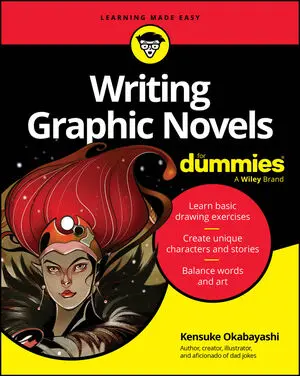Although you can play fast and loose with some facts in a fictional children's book, you don’t have that luxury when you’re working on a nonfiction book. To do so not only potentially risks your reputation with publishers and book buyers, but it can lead to disillusioned children who discover that their favorite nonfiction author is a fraud. And you wouldn’t want to disappoint all those children, would you?
Also, many educational publishers and publishers of nonfiction require that all information be verifiable and that all attributed dialogue be documented. Your audience is not as savvy and discerning as an adult audience and thus your responsibility for verifying your facts is acute.
So how do you make sure that your “facts” are really true and not just the latest urban legend being passed around the Internet? You research, you research some more, and then you research your research.
Trebling up on your research is known as the Rule of Three. If you can find three trustworthy references or resources (go for hardcopy published sources you can hold in your hands and that have been deemed trustworthy by three separate publishers), chances are good that your research is accurate.
Outline the research process
The amount of research you’re going to need to do, where you’re going to do it, and the depth of your efforts will be very much determined by the exact genre of nonfiction children’s books you’re planning to write, how deeply you’re going to cover the topic, and the sophistication of your audience.
A board book on firetrucks — with fewer than 100 words — requires far less extensive research than a nonfiction middle-grade reader on the life and times of Rosa Parks.
So how do you go about researching your nonfiction children’s book?
Choose a topic.
The topic you select will have a great impact on where and how you will do your research.
Outline your book.
How will you know what research to do if you don’t know what topics you’ll cover in your book? Here’s the short answer: You won’t.
Create a research plan.
The plan should include the sources you intend to look up (newspaper and magazine articles and books), places you intend to visit (libraries, museums, research institutions, historical sites), and people you intend to interview (experts, researchers, celebrities).
If, for example, you are writing a nonfiction book on farm animals, your plan might include visits to a local library, some time on the Internet, time at a 4-H club meeting, interviews with children who live on farms with animals and, of course, a number of visits to real working farms.
And don’t forget to include in your plan the images you might need to create or acquire permission to use along the way.
Put your plan into effect.
Get out there and start researching your topic. For many writers, researching is almost as fun (and in some cases, more fun) than the actual writing process.
Organize your results.
Interviews should be transcribed, articles organized, facts compiled, and sources credited. Be sure to triple-check your facts — when in doubt, check it out again and then once more.
Get around locally
Depending on the topic you’re researching, plenty of local resources (and their websites) can help with your research. Some of these resources include:
Local newspapers
Libraries
Government offices
Company headquarters
University research labs
Planetariums
Museums
Go far afield
You’re not limited to doing your research locally: You also have the option of doing your research long distance. Check out these additional resources (and their websites) for doing your research:
Library of Congress
Smithsonian Institution
The National Archives
National Geographic Society
National magazines
Out-of-town small newspapers
Associations and societies
National experts
Research institutes
Universities and colleges
Government offices
Foreign embassies
Businesses
Using the power of long-distance telephone directories and the Internet, it’s pretty easy to track down a phone number or URL for even the most remote resource. Don’t be shy — most of these organizations are accustomed to fielding questions like yours. And most experts are happy to help, by guiding you to the next step, foisting you off on someone else, or stepping up and sharing some expertise.
Visit the Web — a lot
The Internet is a great thing — it’s entertaining, it’s informative, it’s immediate, and it’s plain fun. But although much of what shows up on the Net is presented as fact, too often these facts are actually fiction.
Sadly, the Internet is chock-full of falsehoods, half-truths, and outright lies. When you’re using the Internet to do your research, be particularly careful about so-called experts who really aren’t. Anyone can put up a website promoting himself as an expert on any topic.
To separate Internet reality from Internet fantasy, keep these tips in mind:
If it sounds too good to be true, suspect that it probably isn’t true.
Establish trusted online sources of information on the Internet, such as online encyclopedias or national newspapers and magazines or other long-established, reliable media.
Remember that blogs are particularly notorious for playing fast and loose with the truth. Consider them sources of opinion, not necessarily fact.
Confirm your information. Use reliable, published sources to confirm what you may have found on a site.
Challenge the information mongers by e-mailing them and asking for links to their sources. If they can provide them, great. If not, suspect that they’re not telling the truth.






